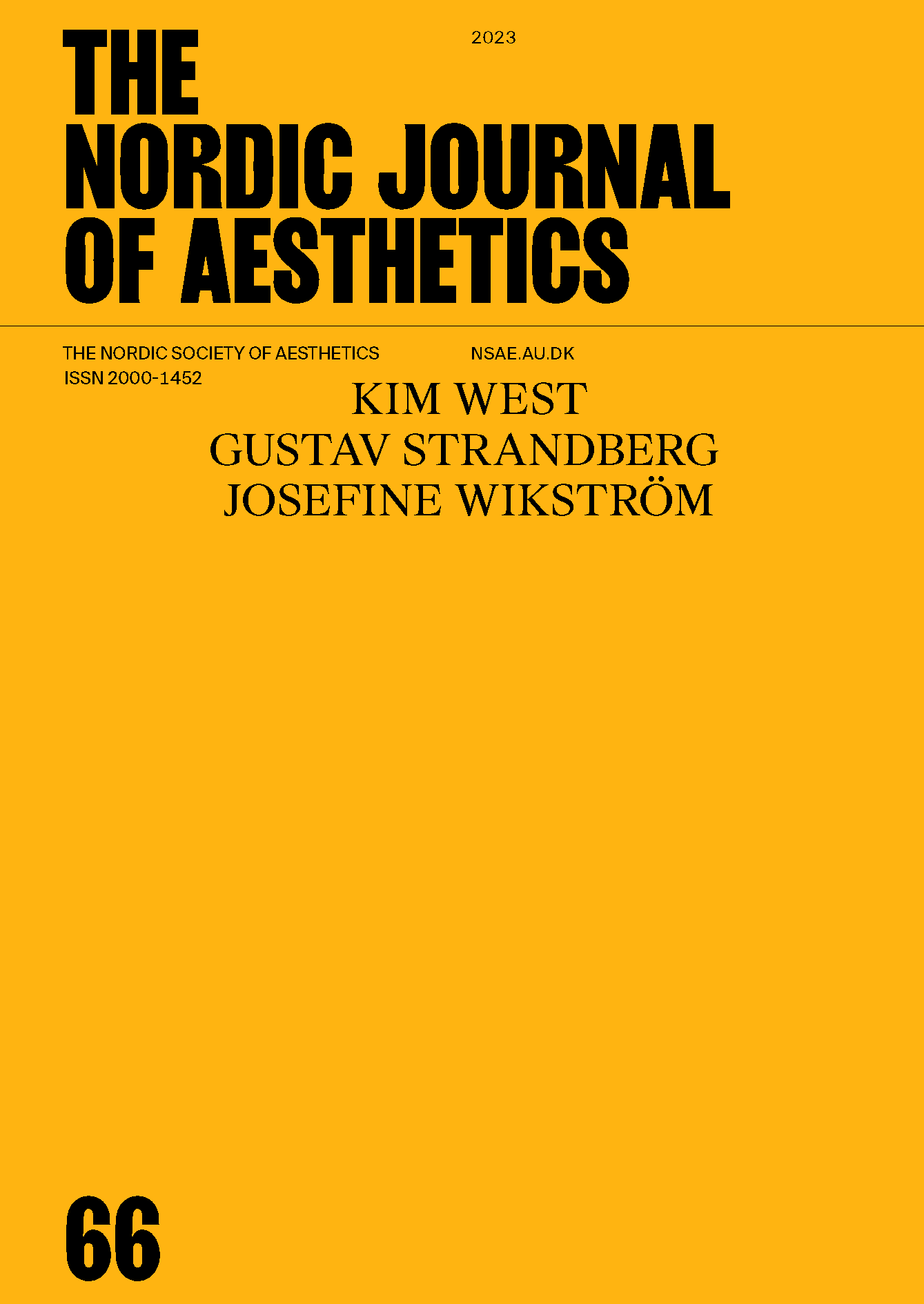A Free Art Calls for a Free Society: On the Freedom of Art and Autonomy as Project
DOI:
https://doi.org/10.7146/nja.v32i65-66.140118Keywords:
Freedom of Art, Autonomy of Art, Cultural Policy, Cultural Critique, Radical Democracy, Social Aesthetics, Cultural Democratisation, Project of Autonomy, Myndigheten för kulturanalys [Agency for Cultural Policy Analysis]Abstract
In recent years, the far right “culture war” has to an increasing extent been allowed to set the terms for cultural policy debates, in Sweden and internationally. In the Swedish context, empty accusations against public cultural institutions of “wokeist” bias and “cancel culture” have found support in a public report from the governmental Agency for Cultural Policy Analysis, which claims that national public funding bodies are imposing politically correct demands on their applicants, with a “detrimental influence” on the freedom of art. This article shows that the ACPA lacks grounds for these claims. Taking its cue from the ACPA’s report, it instead focuses on the fundamental and contested concept of the freedom or the autonomy of art. It seeks to outline what would need to characterise a critical concept of the autonomy of art today, and asks what the political implications would be of a rigorous understanding of such a concept. It argues that cultural policy should be understood as a project of cultural democratization, which should in turn be understood as a project of autonomy.
Downloads
Published
How to Cite
Issue
Section
License
Copyright (c) 2023 Kim West

This work is licensed under a Creative Commons Attribution 4.0 International License.
Authors who publish with this journal agree to the following terms:
- Authors retain copyright and grant the journal right of first publication with the work simultaneously licensed under a Creative Commons Attribution License that allows others to share the work with an acknowledgement of the work's authorship and initial publication in this journal.
- Authors are able to enter into separate, additional contractual arrangements for the non-exclusive distribution of the journal's published version of the work (e.g., post it to an institutional repository or publish it in a book), with an acknowledgement of its initial publication in this journal.
- Authors are permitted and encouraged to post their work online (e.g., in institutional repositories or on their website) prior to and during the submission process, as it can lead to productive exchanges, as well as earlier and greater citation of published work (See The Effect of Open Access).




